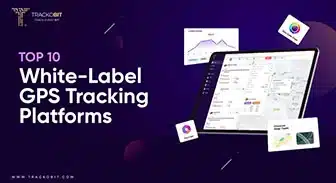-
TrackoBit
Manage commercial vehicles with the new-age Fleet Management Software
TrackoBit -
TrackoField
Streamline your scattered workforce with Field Force Management Software
TrackoField -
Features Resources
-
Blog
Carefully curated articles to update you on industrial trends. -
White Paper
Insightful papers and analysis on essential subject matters. -
Glossary
Explore an alphabetical list of relevant industry terms. -
What’s New
Get TrackoBit & TrackoField monthly updates here. -
Case Study
Explore the cases we solved with our diverse solutions. -
Comparisons
Compare platforms, features, and pricing to find your best fit.
-
About Us
Get to know TrackoBit: our team, ethos, values, and vision. -
Careers
Join the most dynamic cult of coders, creatives and changemakers. -
Tech Support
Learn about our technical support team and services in detail. -
Events
Check out the exhibitions where we left our marks and conquered. -
Contact Us
Connect with us and let us know how we can be of service.
11 Popular Myths About Vehicle Maintenance
- Author:Tithi Agarwal
- Read Time:6 min
- Published:
- Last Update: December 16, 2025
Table of Contents
Toggle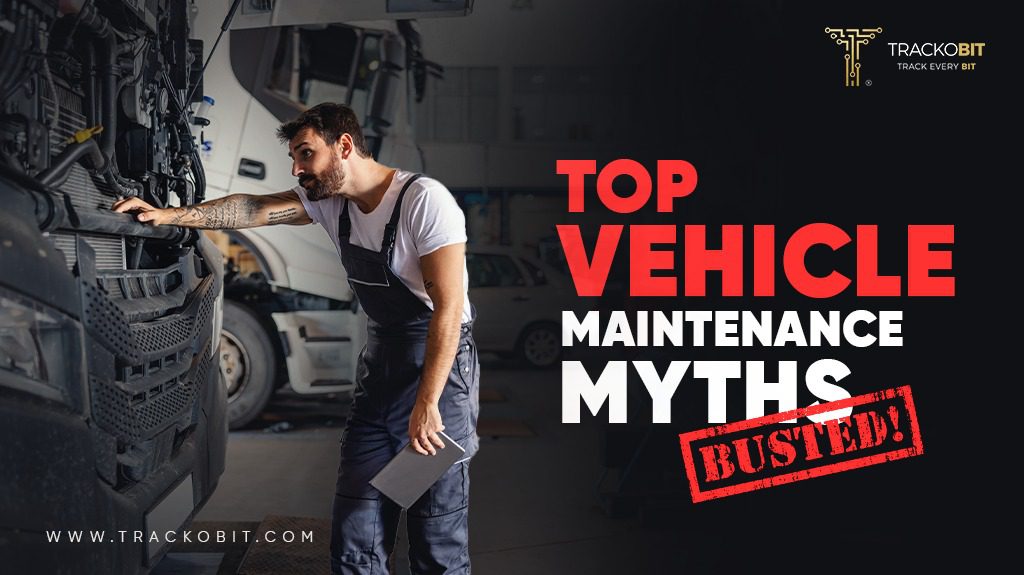
There are a lot of myths surrounding vehicle maintenance, which is costing fleet and vehicle owners money and vehicle health. It’s time we clear the air.
Table of Contents
Toggle
Well, well, well! Are you too googling things about your vehicle’s maintenance and finding it hard to differentiate between facts and myths?
This ain’t fun!
Not ignoring the fact that vehicle health is probably the most important thing for fleet-enabled businesses and logistics industries, we have decided to be the myth busters.
Myth busters in town!
Hop on for a factful journey with our article!
“Now, what I want is Facts. Teach these boys and girls nothing but Facts. Facts alone are wanted in life.” – Charles Dickens, Hard Times
What is Vehicle Maintenance?
Before we start busting myth balloons, it’s best to know what exactly vehicle maintenance stands for.
Vehicle maintenance means vehicle and equipment rehabilitation, mechanical repairs, painting, fueling and lubrication. Preventive maintenance is vital to keep your vehicles running smoothly and continuously for a longer time.
Logistics or transportation firms need to rigorously follow fleet maintenance schedules to improve vehicles’ fuel average, performance, longevity and durability.
Some Common and Not-so-Common Myths Around Vehicle Maintenance
Here are some of the myths that we feel need to be debunked:
1. Engine Oil Change After Every 5000 km
All vehicles need to change the oil every 5000 km- this is one of the most common myths about oil drain interval.. In fact, every vehicle has a different oil replacement interval period. For example, German-made vehicles usually need an oil change at 15000 Km, whereas Japanese vehicles require oil drain at 10000 Km.
The best way to tackle this problem is by sticking to OEM’s suggested oil change interval mentioned in the company manual. To avoid missing out on your oil change appointment, you can opt for fleet management software that will send vehicle maintenance reminders.
2. Tyre Alignment/Balancing Necessary at Every Service
Whenever you send your vehicle for service, the mechanic might suggest adjusting your vehicle’s tyre alignment and balancing. Don’t fall for the trap. Because alignment and balancing are only required when the vehicle pulls to either side, and this has nothing to do with the kilometres travelled.
Some factors to consider before going for alignment and balancing done –
- Did the truck hit something hard, like a pothole, curb etc.?
- Is there uneven wearing of tyres?
- Is the steering wheel not turning easily?
- The steering wheel is remaining at a certain angle despite the fact drivers are driving straight.
- Are you getting new tires?
- Did you change the components of the suspension?
3. Winter Ready!

Many fleet managers consider replacing their vehicles’ engine oil, tyres, and batteries during winter. This is an absolute myth for you to spend big bucks. Modern-day vehicles are well equipped with technology/machinery that is winter-ready or cold starts. There is no need for an oil change to suit the weather outside.
In fact, your wheel bearings and transmission need movement to warm up completely; running the engine before driving in cold weather has no actual benefit other than heating up the interior. Idling the vehicle is a waste of money and fuel.
4. Premium Fuel for Normal Vehicles
This one is our favourite myth about vehicle fleet maintenance – using high-octane fuel to increase the performance of a normal vehicle.
Fact check, please!
Modern-day vehicles run smoothly even on regular quality fuel. Using ‘premium’ fuel will not harm the vehicle but will also not improve its performance- you will just waste your coins. Premium fuel is best recommended for high-performance vehicles with hotter engines.
5. Vehicle Battery Automatically Reacharges Post a Jump Start
If your vehicle loses battery charge, you can always jump-start it to get moving again. But this is a myth that the battery is 100% charged and ready for a long drive. Interior accessories like a heater, music systems, etc., consume most of the charging. The fact is that you have to send your vehicles to a garage for vehicle maintenance, where they can ensure that the battery is fully charged.
6. Replace All 4 Tyres at the Same Time
Expensive Myth!
No, you do not need to bear such a heavy price simultaneously. Replace individual tires as needed as long as they are of the same brand, model and size as the rest of the tires. Ensure the tires are rotated at every other oil change to elongate their lifetime.
This section is a double myth-buster.
If you are thinking of purchasing a new tire just because you have a flat tire, stop. A mechanic can usually plug the hole if the puncture only damages the sidewall or is greater than a quarter inch in diameter. The patch will keep the moisture out of the steel belts and restore your tire’s airtightness.
7. Wash Your Car with Dish or Laundry Soap
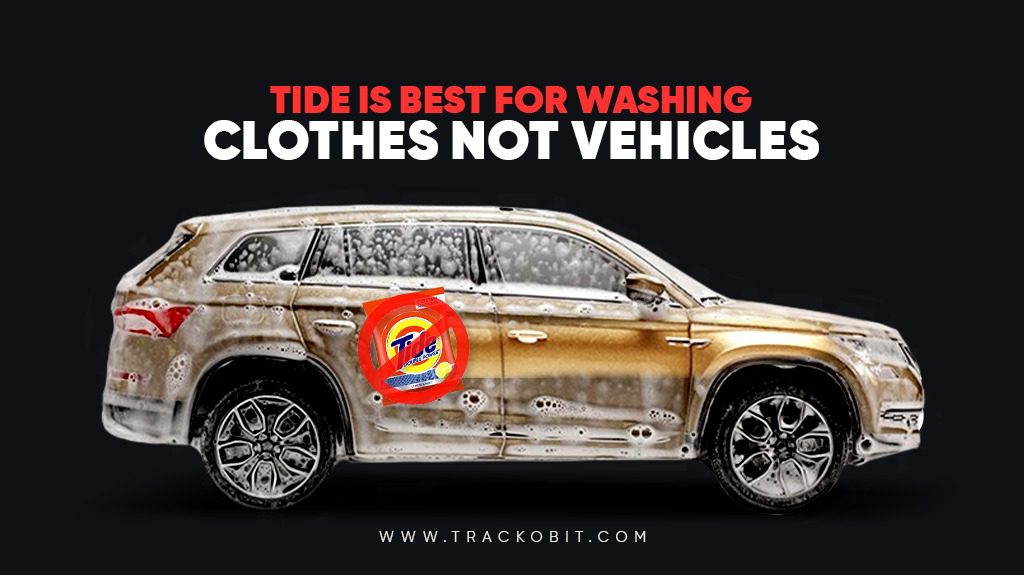
Oh, the blasphemy!
The pristine shine of vehicles gets washed away when you decide to clean your vehicles with detergent or dish soap. This is undoubtedly good for getting all the grease off your dishes and clothes.
Detergent and dish soap strip the wax coating off the vehicle’s coating; over time, that could lead to paint chipping and even rust marks. Maintaining the outer coat/shine of the trucks and other vehicles is very much part of vehicle maintenance.
8. Roll Down the Windows Instead of Using the Air Conditioner for Better Fuel Economy
It’s not a myth that air conditioning does burn more fuel. But rolling down the windows creates additional drag and air resistance, which burns comparatively more fuel.
In the end, both methods burn fuel- it’s up to the fleet owners to do what they prefer (quick reminder sweating and irritated drivers are not ideal for driving)
9. Refueling in the Morning Saves You Money on Gas
A lot of expanding and contracting occurs during heat and cold weather conditions. This has given rise to another myth- that filling up in the morning(cooler hours) might free them some extra fuel. But the truth is that gasoline is typically stored in insulated underground. It simply doesn’t experience enough fluctuation in temperature to affect how much fuel you have.
10. Suggested Maintenance Schedules are Purely Designed to Make You Spend More
Auto repair shops like to keep your vehicles tuned up year after year, so they suggest a maintenance schedule, such as once or twice a year. Some fleet owners might think that this is just another way for garages to make money off them. But in reality, it is to ensure that the trucks get preventive maintenance to avoid big repair jobs.
But suppose you are a fleet owner who is still not convinced. Why not trust software like vehicle maintenance software, which, too, can form schedules and provide preventive maintenance data after monitoring the operational activities your vehicle?
11. Modern Cars Require No Maintenance
The latest fleet technology is built to minimise the burden of vehicle maintenance on owners as much as possible. But this doesn’t mean that fleet owners never have to bring it in for servicing. Electric fleet maintenance is far simpler because their simple engine requires less frequent maintenance.
Regular maintenance is necessary to optimise your vehicle’s health and improve the fleet’s performance. Using vehicle maintenance software can take on the burden of scheduling and keeping up with the alerts and multiple parameters, which might indicate taking the vehicle for repair.
Keep Your Car Running With Top-Notch Vehicle Maintenance
Vehicle maintenance is a crucial part of owning/operating/depending on a fleet. But there are a lot of myths and misconceptions about how you can take care of the trucks, and giving in to them can cost fleet owners a lot of money and downtime. Knowing the facts behind these myths can help you avoid them.
If you, too, are looking for the best vehicle maintenance for your vehicles, then look no further. TrackoBit can help you with analytical dashboards and help form a connection with not only the exterior health but also the internal health of each vehicle in the fleet.
Tithi Agarwal is an established content marketing specialist with years of experience in Telematics and the SaaS domain. With a strong background in literature and industrial expertise in technical wr... Read More
Related Blogs
-
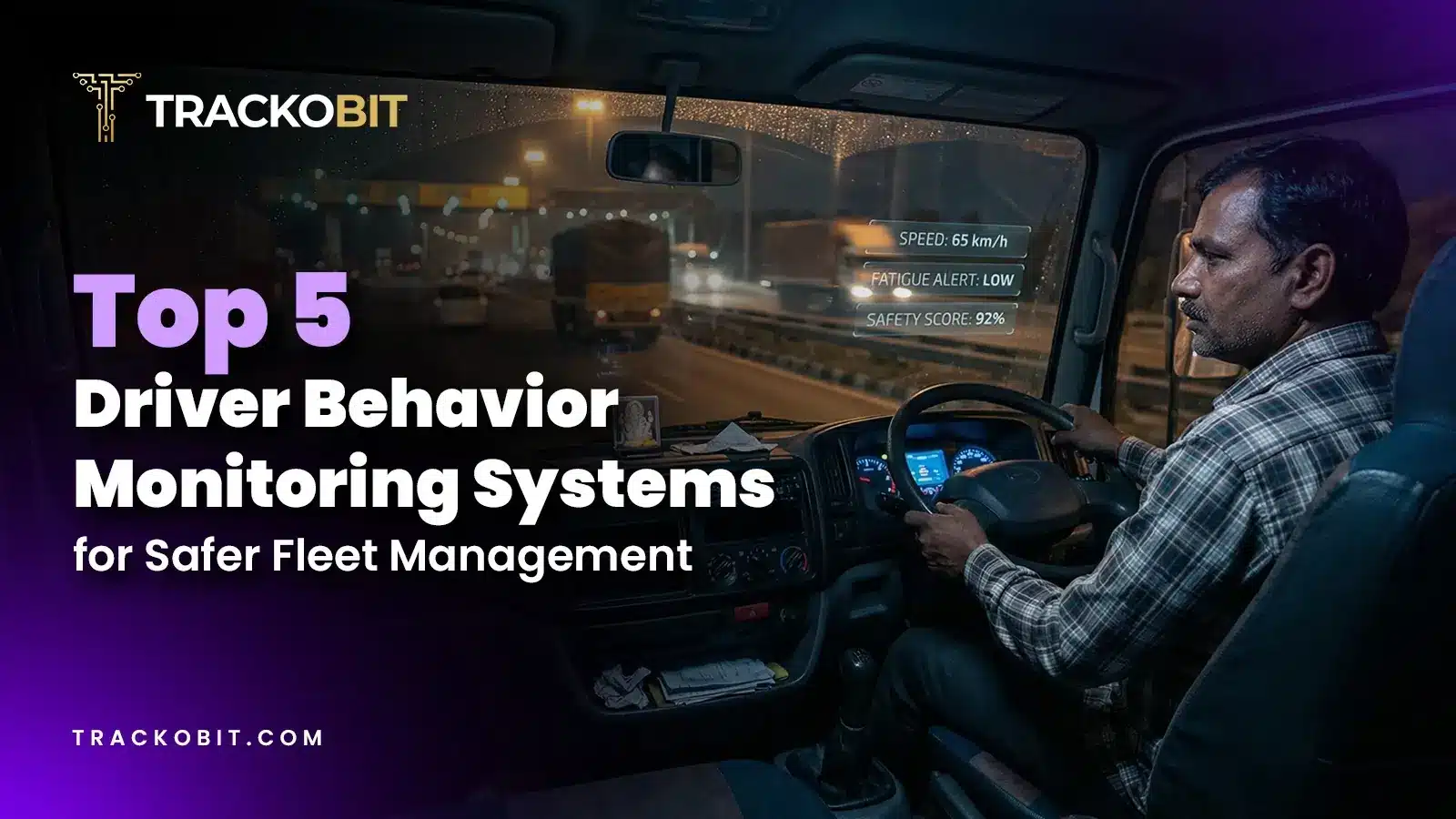
5 Best Driver Behavior Monitoring Systems for 2026
Tithi Agarwal February 23, 2026Having the best driver behavior monitoring system is a necessity as it helps you ensure driver safety and optimize operational…
-
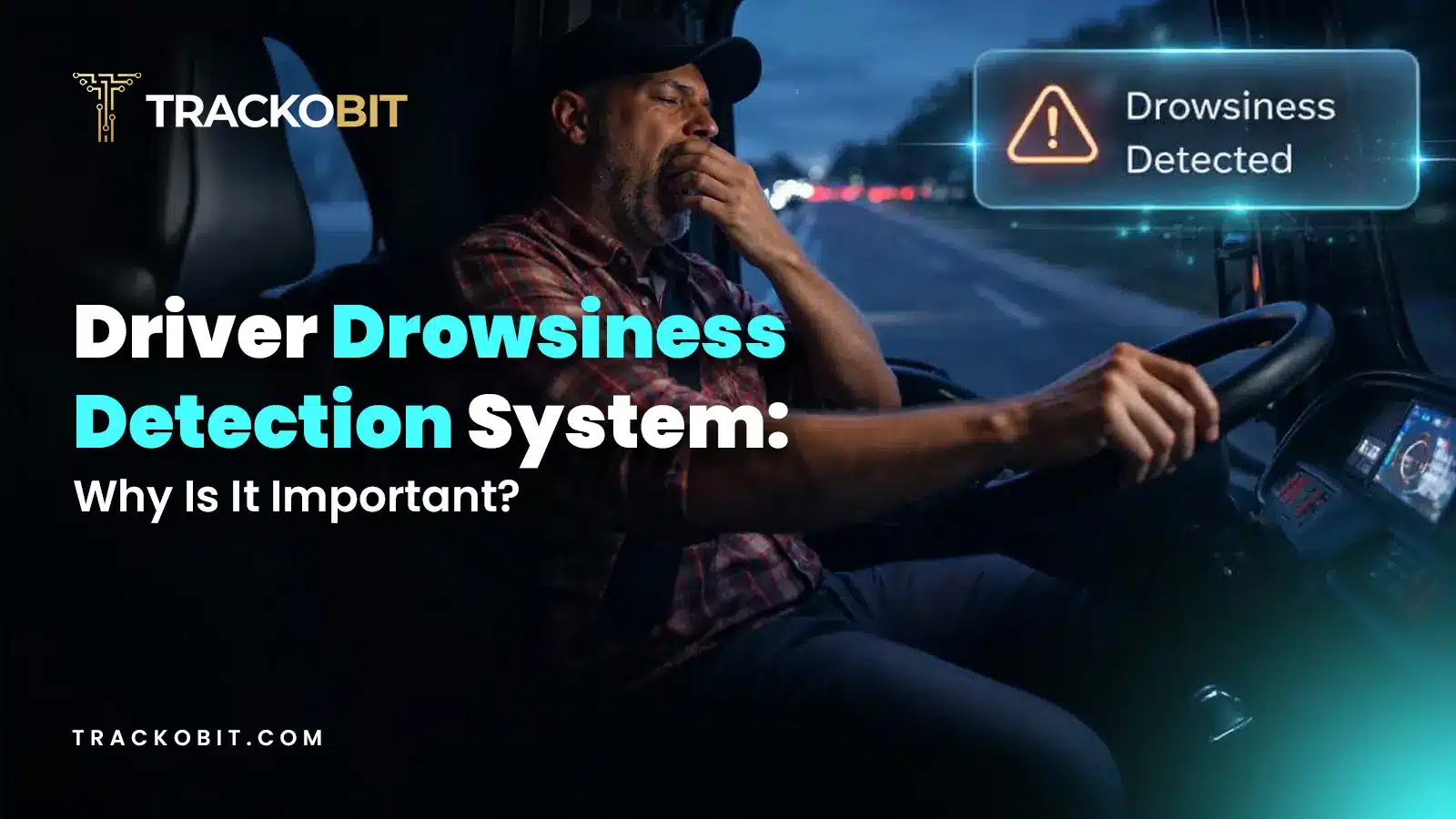
Why is Driver Drowsiness Detection System Important for Fleet Management?
Shemanti Ghosh February 4, 2026A driver drowsiness detection system is critical for fleet management. It helps prevent fatigue-related accidents and reduces operational risks through…
-
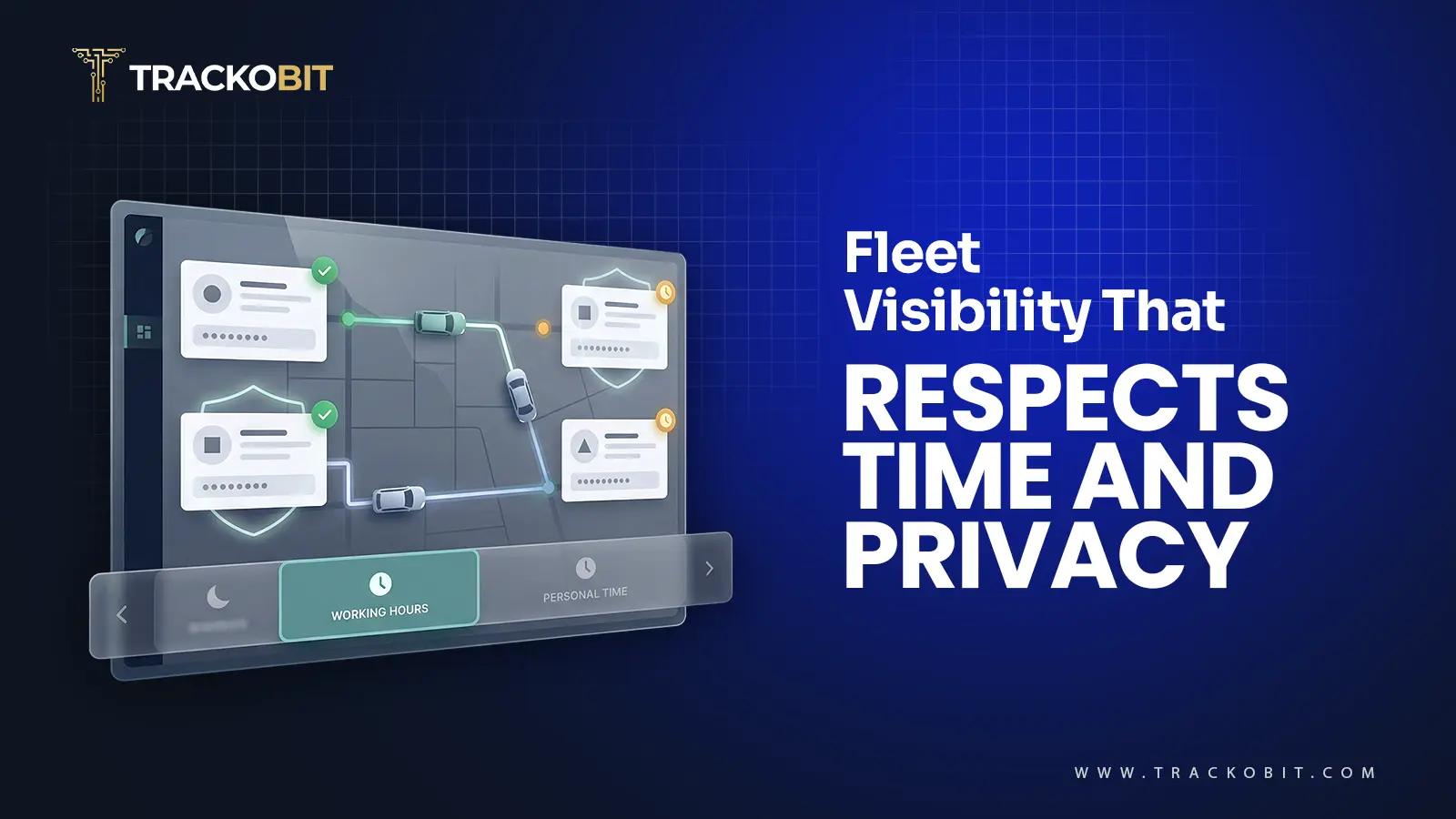
When Tracking Needs a Clock: Rethinking Fleet Visibility
Tithi Agarwal December 24, 2025Read on to understand why fleet tracking works better when it follows working hours. Because visibility should support operations, not…
-

What Makes TrackoBit’s Video Telematics Software Truly Next-Gen?
Shemanti Ghosh December 17, 2025TrackoBit’s video telematics software blends smart video intelligence with full server control. The result? Superior fleet reliability and safety.

Subscribe for weekly tips to optimize your fleet’s potential!
Your inbox awaits a welcome email. Stay tuned for the latest blog updates & expert insights.
"While you're here, dive into some more reads or grab quick bites from our social platforms!"Stay Updated on tech, telematics and mobility. Don't miss out on the latest in the industry.
We use cookies to enhance and personalize your browsing experience. By continuing to use our website, you agree to our Privacy Policy.



































